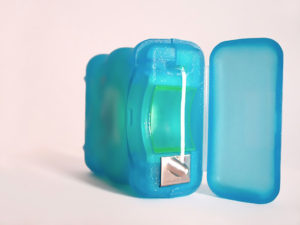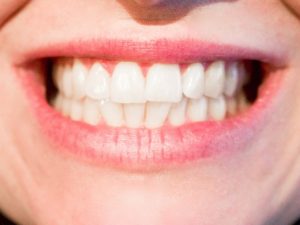Dentist Durham NC
 Your smile is one of the first things a person will notice when you meet. If you would like to improve your smile with a simple procedure, teeth whitening may be a great option for you, especially if you have stained, dull or discolored teeth. Our dental office is providing teeth whitening services to new and existing patients.
Your smile is one of the first things a person will notice when you meet. If you would like to improve your smile with a simple procedure, teeth whitening may be a great option for you, especially if you have stained, dull or discolored teeth. Our dental office is providing teeth whitening services to new and existing patients.
Regardless of how well you care for your teeth, over time, discoloration will occur. The main causes of stained teeth are genetics, antibiotics, tobacco and certain foods. As we age, our teeth darken as well. While preventing tooth discoloration is nearly impossible, our experienced team can help reverse the effects of discoloration by helping to create a whiter and brighter smile.
Whether it’s an in-office treatment or at-home treatment, the principles of teeth whitening are the same. A special whitening agent is applied to the teeth in order to bleach the stains and brighten your smile. Our expert dentist will discuss your whitening needs and goals with you to determine which option is best for you.
In-office teeth whitening is the quickest method to a brighter, whiter smile. With the supervision of an experienced dental professional, a stronger bleaching solution can be used than with at-home kits.
Optimal results are achieved much faster with the professional whitening treatment, and in many ways the results are much better given the nature of the bleaching agents that are used. On average, patients find they appear up to ten years younger just by restoring the bright, white smile of their youth.
During a professional teeth whitening treatment, we will first clean the teeth. They will apply a whitening agent to your teeth, carefully avoiding your gums and soft tissue. Once applied, a laser light will be directed at the teeth to expedite the process. For maximum results, the process may be repeated more than once.
If a visit to our office for professional whitening isn’t an option for you, at-home treatment may provide the whitening you need. While you will find a vast variety of at-home teeth whitening products on the market, including whitening toothpastes, over-the-counter gels, rinses, strips, trays and more, we can fit you with custom-made whitening trays that will more accurately fit to your teeth for a more even whitening result.
At-home teeth whitening results are less dramatic compared to those achieved at the dentist. While at-home teeth whitening is easy to use, it is not recommended if your teeth or gums are sensitive.
Park Place Dental of Durham, NC
245 E NC Hwy 54 Suite 204, Durham, NC 27713
(919) 484-8088




 Loose teeth, bad breath, and painful, bloody gums – these are among the signs and symptoms of periodontal, or gum, disease. Unfortunately, periodontal disease can also begin without any obvious symptoms. If left undiagnosed or untreated, you could be at risk for irreparable damage to your teeth and gums. The good news is that periodontal disease is preventable. In fact, one of the most effective tools for preventing the disease only takes a minute of your time each day.
Loose teeth, bad breath, and painful, bloody gums – these are among the signs and symptoms of periodontal, or gum, disease. Unfortunately, periodontal disease can also begin without any obvious symptoms. If left undiagnosed or untreated, you could be at risk for irreparable damage to your teeth and gums. The good news is that periodontal disease is preventable. In fact, one of the most effective tools for preventing the disease only takes a minute of your time each day. Do you brush your teeth after lunch? If you’re one of the millions of people who work outside the home, chances are you don’t have the time or resources to brush during the day. However, not being able to brush doesn’t mean you can’t protect your teeth at work.
Do you brush your teeth after lunch? If you’re one of the millions of people who work outside the home, chances are you don’t have the time or resources to brush during the day. However, not being able to brush doesn’t mean you can’t protect your teeth at work. Are you embarrassed to show your smile because of missing teeth? For many people, missing teeth can create a feeling of diminished self-confidence. Modern dentistry can not only replace the gaps in your smile, our team can also create long-term replacements that look and feel just like your natural teeth. You have options. Here are a few of the most common tooth replacement solutions.
Are you embarrassed to show your smile because of missing teeth? For many people, missing teeth can create a feeling of diminished self-confidence. Modern dentistry can not only replace the gaps in your smile, our team can also create long-term replacements that look and feel just like your natural teeth. You have options. Here are a few of the most common tooth replacement solutions. Calcium is an important mineral for building strong, healthy teeth. Not everyone can tolerate the lactose found in dairy, which is often a prime source for calcium. There are a wide variety of options available to get the calcium you need. Here are six options rich in calcium:
Calcium is an important mineral for building strong, healthy teeth. Not everyone can tolerate the lactose found in dairy, which is often a prime source for calcium. There are a wide variety of options available to get the calcium you need. Here are six options rich in calcium: Teeth grinding, known as bruxism, is a habit many get into without even realizing it. Grinding your teeth can be damaging for several reasons. If you or your child have been struggling with teeth grinding, make an appointment to see us. We will assess the damage to the teeth, as well as assist you in addressing solutions. Here’s what you need to know about teeth grinding.
Teeth grinding, known as bruxism, is a habit many get into without even realizing it. Grinding your teeth can be damaging for several reasons. If you or your child have been struggling with teeth grinding, make an appointment to see us. We will assess the damage to the teeth, as well as assist you in addressing solutions. Here’s what you need to know about teeth grinding. Mouthwash can be helpful in decreasing the amount of bacteria in your mouth. It can also be a useful way of combating decay. But not everyone needs to use a mouthwash. If you are wondering whether you should be using a mouthwash, here’s what you need to know.
Mouthwash can be helpful in decreasing the amount of bacteria in your mouth. It can also be a useful way of combating decay. But not everyone needs to use a mouthwash. If you are wondering whether you should be using a mouthwash, here’s what you need to know. Is anxiety or nervousness preventing you from visiting our team? Dental treatments should not be a cause of stress. If you worry about pain, embarrassment, or loss or control during a dental examination, we want you to know two very important things: You are not alone and We can help.
Is anxiety or nervousness preventing you from visiting our team? Dental treatments should not be a cause of stress. If you worry about pain, embarrassment, or loss or control during a dental examination, we want you to know two very important things: You are not alone and We can help. Nearly everyone has at least one habit that they wish they could break. Did you know that some of them can affect your oral health? Here are a few common habits and tips for how to break them.
Nearly everyone has at least one habit that they wish they could break. Did you know that some of them can affect your oral health? Here are a few common habits and tips for how to break them.